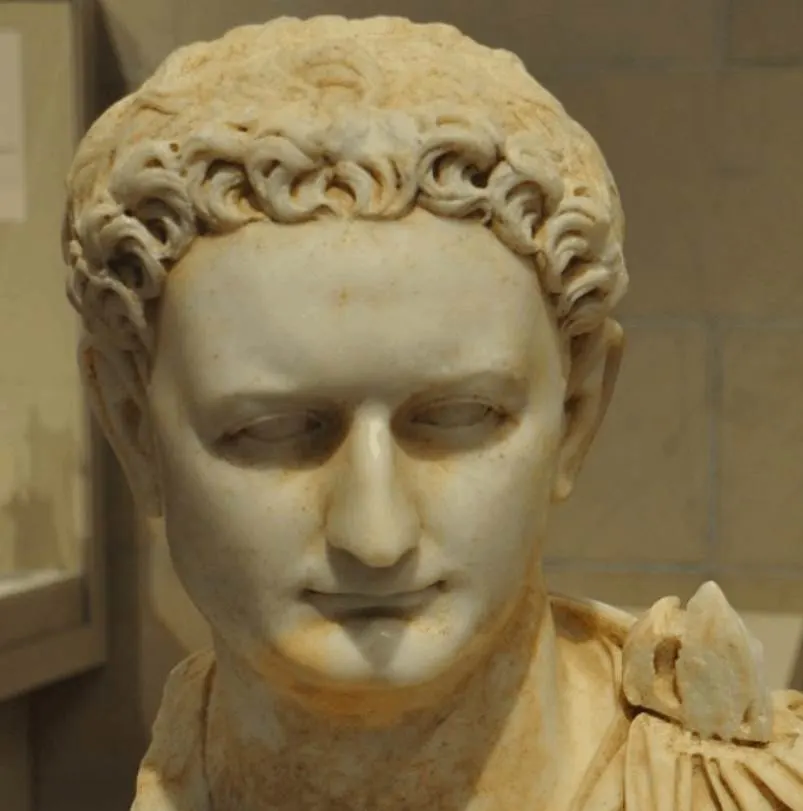He was one of the Roman Emperors that ruled the empire for over a decade with mixed results.
In this post, you’ll discover the ultimate list of interesting facts about Domitian.
1. He was Emperor at the end of the 1st century A.D.
Domitian was born as Titus Flavius Domitianus and was Roman Emperor from the year 81 A.D., taking over the reign of his older brother Titus, until the year 96 A.D., when he was assassinated by political rivals.
2. He was the final member of the Flavian Dynasty
Vespasian was the father of both Domitian and Titus and was the first member of what is now referred to as the “Flavian Dynasty.” Domitian would end up being the last member of this dynasty.
The Flavians ruled the empire for a period of 27 years and were unique in the sense that their dynasty consisted of just one man, Vespasian, and his two sons, Titus and Domitian.
Their biggest achievement was to restore the Empire’s finances by integrating a new taxation system and revaluing the Roman coinage. This was desperately needed after Emperor Nero had left the Empire pretty much bankrupt due to his extravagant behavior.
3. His family grew from obscurity to the highest rank of Ancient Rome
The story of Domitian’s family is quite remarkable, as, in just 4 generations, they worked themselves up from complete obscurity to actually ruling the Roman Empire.
Starting as loyal supporters of the Julio-Claudian Dynasty, which started the Roman Empire after the fall of the Republic, it culminated into his father Vespasian holding the rank of Consul in the year that Domitian was born, 51 A.D.
This was a pretty impressive achievement for a man whose nickname was the “mule-breeder,” don’t you think?
4. The Flavians came to power because of the Jews

While this is heavily disputed among historians, contemporary accounts claim that Vespasian had fallen out of favor during the reigns of Caligula (37 – 41) and Nero (54 – 68).
Who would have thought this man would ever become Emperor? In the 50s, nobody would have believed it, that’s an understatement.
His chance to regain his power came when there was a massive uprising in Judaea in the year 66 A.D. and Vespasian was sent out with his son Titus to beat down the revolt.
During their campaign of genocide, Nero had committed suicide and a bloody Civil War broke out. The unlikely winner of what is referred to as the “Year of the 4 Emperors” was Vespasian, who became Emperor in 69 A.D.
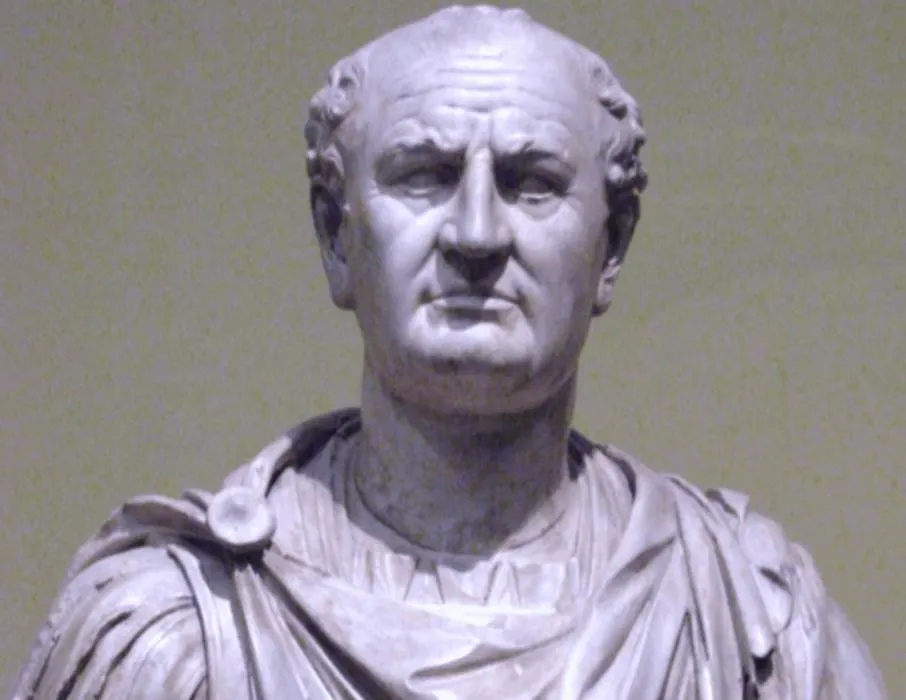
5. He gave his first speech in the Senate at just 18 years old
While his father and brother were taking over the empire after their glorious victory in Judaea, Domitian was still in Rome. It’s unclear who took care of the adolescent Domitian because both his mother and sister had died earlier and his father and brother were constantly away on military campaigns.
Nevertheless, when Vespasian became Emperor in 69 A.D., Domitian had an important role as he was given the title of Caesar and was appointed praetor with consular power.
This means he became the representative of the Flavian family during their absence in Rome, which was the case almost an entire year after as Vespasian only arrived in Rome in September 70 A.D.
He gave his first speech before the Roman Senate at the age of 18.
6. He only had a minor role during the rule of his father and brother
Even though he had some important duties during the first year of the rise to power of the Flavians, he only had a minor role during the rule of his father (69 – 79) and brother (79 – 81).
His father and brother were given a triumphal procession upon their arrival in Rome followed by the spoils of the Jewish revolt and members of the Flavian family, including Domitian.
He was given 6 consulships during the reign of his father but these were mostly ceremonial in nature.
7. Domitian was a well-educated man
Domitian grew up privileged and was therefore given the education of the Senatorial class of Ancient Rome. He studied rhetoric and literature and was interested in art, most specifically poetry.
This gave him the benefit of being able to perfectly quote important poets and writers such as Homer or Virgil, something that was very beneficial for his oratory performances.
8. He had one very particular insecurity as an adult
One of the most peculiar facts about Domitian is that he was balding at an early age and was apparently very insecure about this. he, therefore, covered his bald spots by wearing wigs for most of his adulthood.
One of his biographers even mentioned that he wrote a book on hair care, which emphasizes how deep his insecurity about his baldness really was.
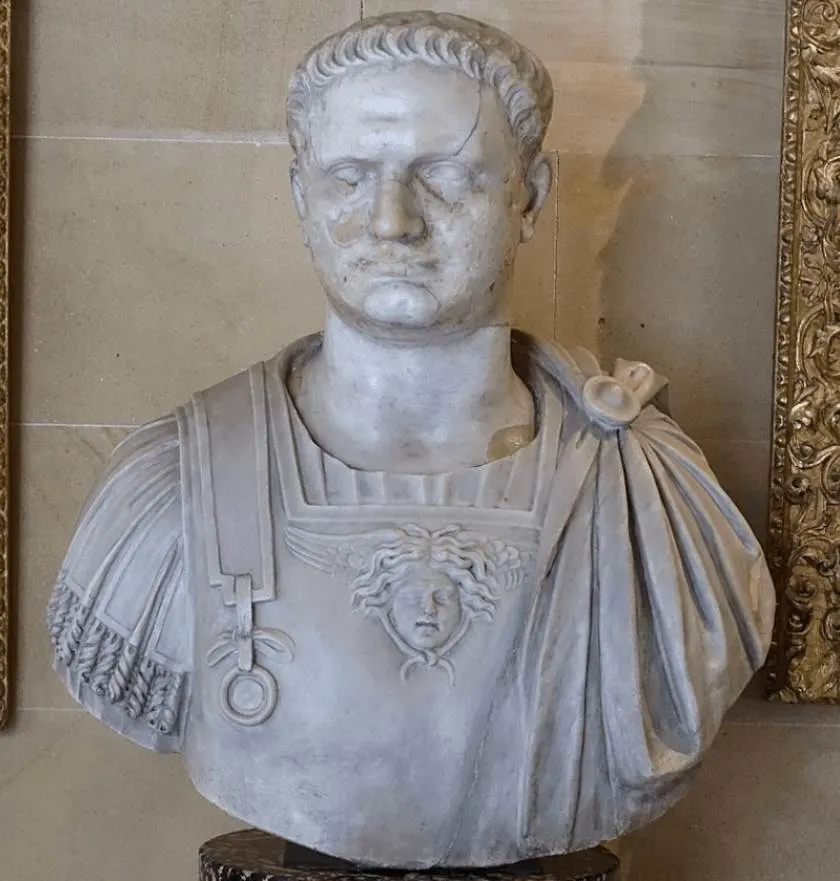
9. He got married to a descendant of Emperor Augustus
Domitian had a wife named Domitia Longina, who was previously married to a member of the Roman Senate. He managed to get them divorced so he could marry her himself.
Even though their marriage has been described as happy, little is known about the woman and whether or not she had a direct influence on the political career of her husband.
They had a son but he died in early childhood and she apparently had an affair with an actor named “Paris,” but he took her back as he couldn’t stand the separation.
The most important fact about his marriage is that it was a great political move as Domitia Longina was the granddaughter of Junia Lepida, a descendant of Emperor Augustus himself!
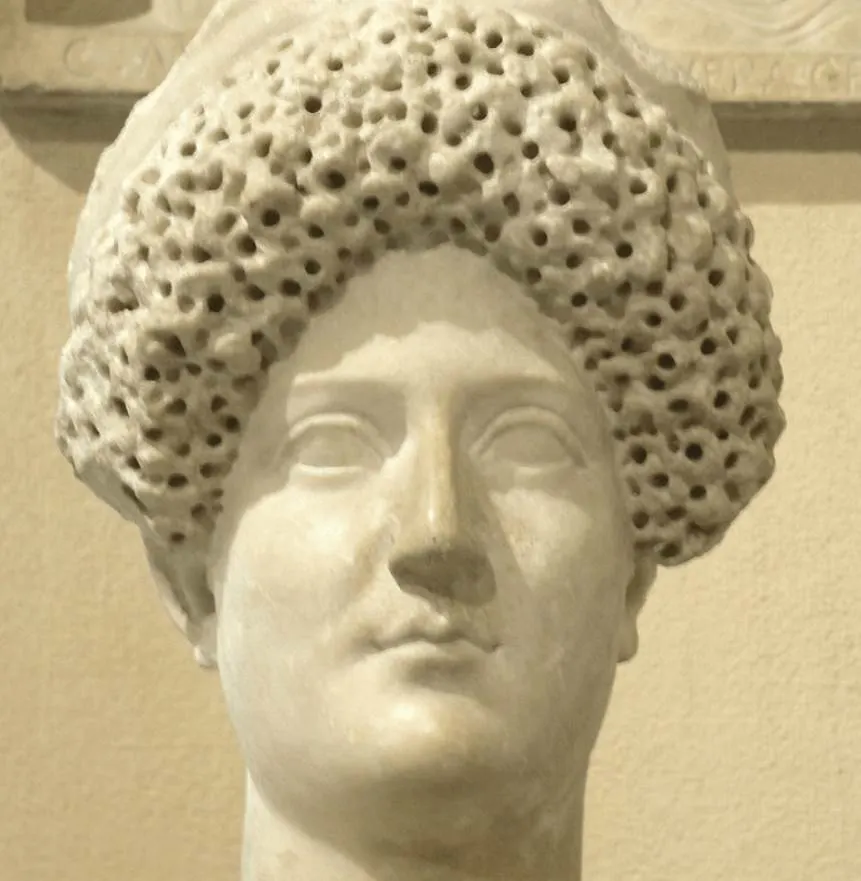
10. He came to power in suspicious circumstances
Many contemporary accounts claim that Domitian had a stake in the sudden death of his brother Titus. There were already rumors that he was openly plotting against his brother during his reign, for which he was spared.
The accusers further claim that he either had was directly involved in the death of Titus, who died from a fever in 81 A.D. just two years into his reign, or that he at least left him for death without helping him.
The rumors are based on the final words of Titus who said “I have made but one mistake,” possibly referring to the fact that he didn’t punish his brother when he found out about his plotting.
Regardless of the accusations, Domitian was declared Emperor on September 14, 81 A.D., and given the powers of Pontifex Maximus, and the titles of Augustus (“venerable”), and Pater Patriae (“father of the country”).
11. He started numerous building programs all over the Empire
One thing that marked his reign was the numerous building projects he started. The first thing he did was deify his brother Titus and commission the construction of the Arch of Titus, one of the most famous triumphal arches located near the Roman Forum.
he also completed the infamous Roman Colosseum, which was referred to back then as the “Flavian Amphitheater,” and further built the the “Palace of Domitian” on the Palatine Hill, numerous villas all across the Empire, including the “Villa of Domitian,” and the Domitian Stadium, a huge stadium to host games, and the Odeum of Domitian.
During his entire 15-year reign, over 50 massive building projects were completed, a record only second to the 40-years reign of Emperor Augustus.
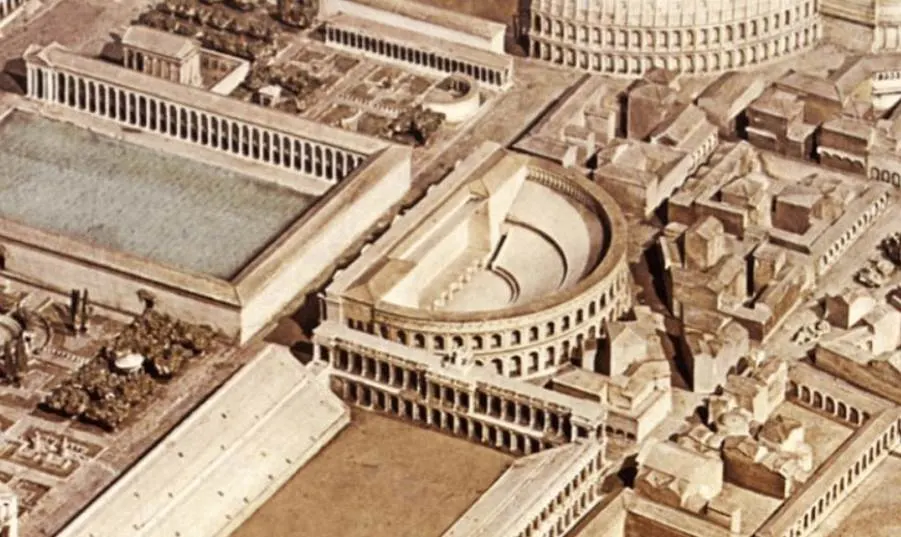
12. He had an enormous income during his reign
The main reason that he could indulge in a large number of building projects was that he had an enormous yearly income, estimated to have been around 1.2 billion sestertii.
The foundation of this was laid by his father and brother who completely changed the taxation system. Domitian is credited with revaluing the Roman currency, a smart move that instantly offered him vast amounts of money.
One of the most interesting facts about Domitian is that he was also a very generous Emperor. It’s estimated that he gave away about 135 million sestertii during his reign to the Roman people in the form of public banquets and lavish games.
These were merely enormous propaganda campaigns to keep the people of Rome happy.
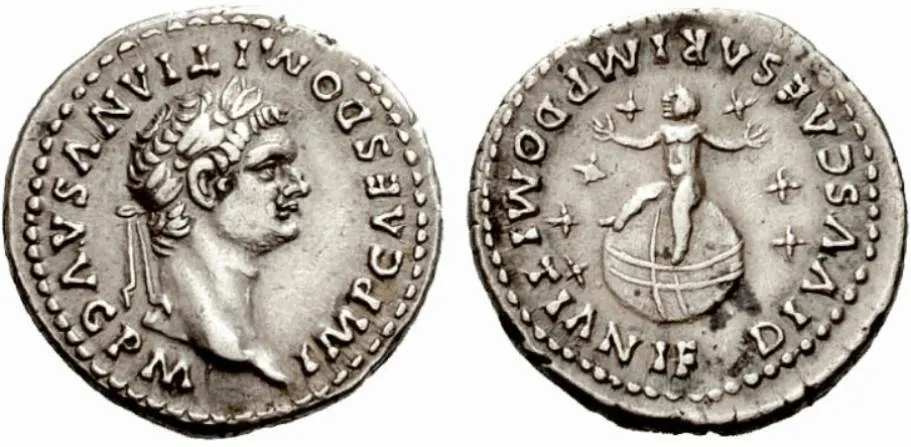
13. His military strategy wasn’t focused on expansion
It’s fair to conclude that Domitian wasn’t the great military leader that both his father and brother were. After all, he didn’t have any known formal training and wasn’t involved in any of the military successes of his closest family members.
Therefore, he took a defensive approach and is attributed to the construction of the Limes Germanicus, a vast network of roads and watchtowers to protect the Roman border near the Rhine River.
He did, however, go on a couple of military campaigns in Gaul, Britain, and Dacia, with limited success, even though he gave himself multiple triumphs to celebrate his victories, which were mere propaganda campaigns.
14. Domitian had a troubled relationship with the Senate
One of the main reasons for his demise was the fact that he openly rejected the idea that the Senate should have any power. What’s striking about this is that this was the exact framework that was established by Augustus.
Domitian wasn’t too subtle about it and enforced the fact that he as the ultimate ruler and the Senate was merely a facade of democracy, which was non-existent.
Needless to say that this didn’t go too well with the aristocrats in the Senate…
15. Domitian saw a vision of his own death in a dream
Domitian was assassinated in a conspiracy by court officials on September 18, 96 A.D., at the age of 44. One of the most interesting facts about Domitian is that he saw his own death in a dream.
He was also told that he would die at noon, which made him a bit erratic at this time of the day.
One of the conspirators was close to him and when Domitian asked the time, he told it was late in the afternoon. This calmed him down and shortly after the conspirators attacked.
His prophecy became true because he died at noon!
16. Domitian’s memory was erased from history by the Senate
Another one of those fascinating facts about Domitian is that shortly after his death, the Senate appointed one of his closest confidants Nerva as Emperor to avoid another civil war. After all, he didn’t have any heir and this would without a doubt have been the result.
The moment Nerva became Emperor, the Senate passed “damnatio memoriae,” literally meaning that he was erased from memory.
He must have really made some serious enemies in the Senate because he was the only Emperor together with Geta a century later who received this after their deaths!
17. How did Domitian’s rule go down in history?
The fact that Domitian was completely removed from memory in Rome doesn’t help to get an accurate view of his rule. Most of the existing publications around that time were negative but were surely biased.
Modern historians agree that Domitian was a cruel ruler and most certainly constantly paranoid, resulting in numerous executions of Senators and other officials.
They also see the positive things, though, which were the fact that he was very efficient and laid the foundation for the Principate of the peaceful 2nd century. The Roman Empire thrived during his reign, that’s simply a fact.
German historian Theodor Mommsen therefore fittingly described his rule as a “somber but intelligent despotism.”
